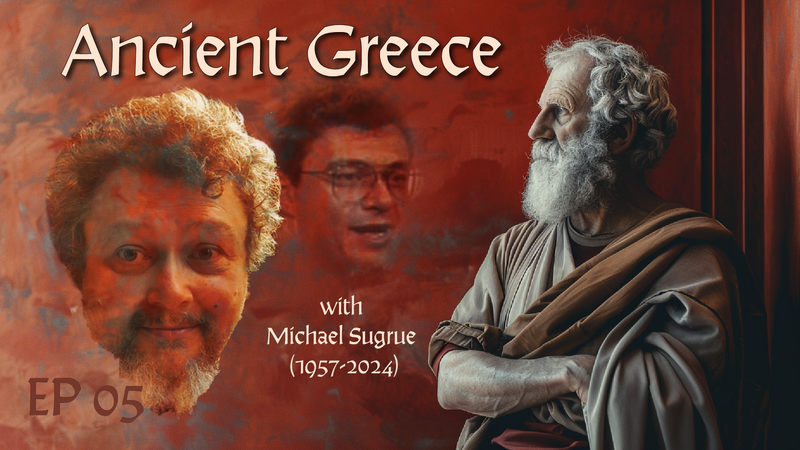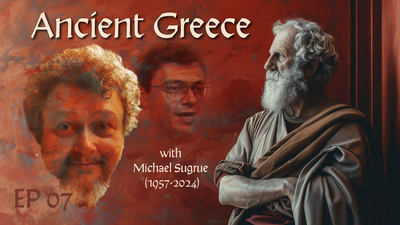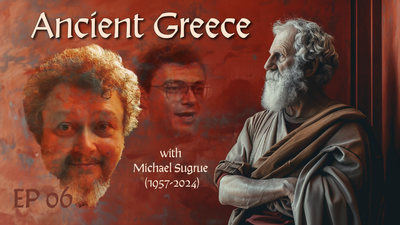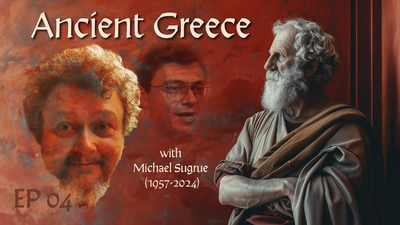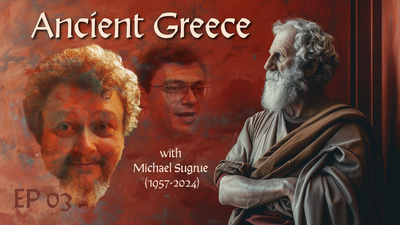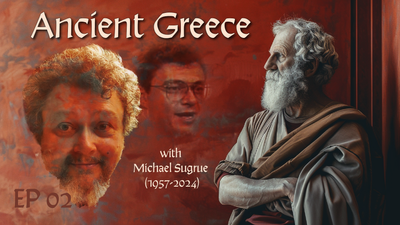As we delve into this week’s theme, the story of Socrates’ death stands as a testament to the transformative power of philosophical inquiry. In Phaedo, Plato invites us to witness not merely a tragic event, but a profound demonstration of Socrates' commitment to truth and virtue. His calm acceptance of death challenges us to confront our own mortality and reflect on the purpose of our lives. What can we learn from a man who, in the face of an unjust execution, chose to maintain his integrity rather than escape?
One of the most striking elements of Socrates’ story is his unyielding adherence to his principles. When given the opportunity to flee, Socrates declined, choosing instead to accept the punishment of his city-state. This choice was not born of resignation, but rather a deep belief in justice and his duty as a citizen. Socrates understood that avoiding death through unjust means would undermine the very philosophy he had spent his life teaching. By accepting his fate, Socrates teaches us that a life lived in pursuit of truth requires consistency between our words and actions.
From the Archives of Ancient Greece: Featuring Dr. Michael Sugrue
Dr. Sugrue’s reflections on Socrates' death offer a nuanced understanding of what it means to die for one's beliefs. In his analysis, Sugrue draws parallels between Socrates’ decision and the concept of philosophical martyrdom. Unlike martyrs driven by religious convictions or political ideals, Socrates’ sacrifice was motivated by the philosophical pursuit of a life well-examined. Sugrue emphasizes that Socrates did not die simply to prove a point or elevate his status; instead, he saw his death as the logical extension of his life’s work.
Sugrue’s commentary helps us grasp the gravity of Socrates’ final moments. To illustrate, he compares Socrates’ death to that of other historical figures who faced death with similar resolve, such as Thomas More or Giordano Bruno. However, unlike these figures, Socrates did not see himself as a victim. He remained calm and reflective, using his final moments to engage in dialogue with his friends. This unique approach to death marks Socrates as not just a thinker, but as an example of how to live and die with philosophical integrity.
Insights from the Dialogues: Quoting Plato
Socrates’ last words, as recounted in Phaedo, are a subject of ongoing interpretation. His enigmatic message about offering a rooster to Asclepius, the god of healing, can be seen as a symbol of purification or liberation. On one hand, Socrates may be expressing gratitude for being freed from the physical body, viewing death as a healing process for the soul. On the other, he might be acknowledging the human need for reconciliation with life’s end, a final debt paid to the divine.
These words, seemingly simple, carry layers of meaning that reveal Socrates’ acceptance of death not as an enemy but as a natural conclusion to the philosophical journey. The dialogue between Socrates and his disciples also showcases the power of intellectual companionship in facing life’s greatest trials. They discuss not only the soul’s immortality but the value of a life spent seeking the Good. Through this dialogue, Plato leaves us with a vision of the philosopher not as a distant figure but as an ideal worth striving toward—a person who confronts even death with grace and thoughtfulness.
Chance and Fate: Exploring Ancient Games
In the ancient world, dice games were more than simple pastimes; they held deep symbolic meaning related to fate and the acceptance of uncertainty. Knucklebones, the precursor to modern dice, were often used in rituals and divination, reflecting the belief that life’s outcomes were intertwined with the will of the gods. Socrates’ acceptance of his fate mirrors this acknowledgment of life’s unpredictability. He saw death not as a random misfortune but as a part of the larger cosmic order.
Explore the Mystical World of Astraguli: Ancient Games of Chance with Cultural Significance.
To draw a contemporary parallel, consider the decisions we make when faced with adversity. Just as in a game of chance, we cannot control the hand we are dealt, but we can choose how to play it. Socrates’ calm demeanor in his final hours exemplifies how a philosopher understands and accepts life’s inherent uncertainty. This message resonates today, reminding us that the pursuit of wisdom includes recognizing the limits of our control and embracing fate with dignity.
Virtues Revisited: Practical Lessons for Today
Socrates’ final moments offer a powerful lesson in courage, one of the four cardinal virtues central to Platonic philosophy. Courage, in this context, is not merely a matter of facing physical danger but confronting existential uncertainty with fortitude. Socrates’ decision to drink the hemlock, even when escape was possible, demonstrates the kind of moral courage that transcends fear of death. It’s a reminder that living well means staying true to one’s principles, even when it costs everything.
Today, we are often confronted with choices that test our integrity. Whether it’s standing up for what we believe in or making a difficult ethical decision, Socrates’ example encourages us to act with courage and consistency. In a world where compromising one’s values for comfort is all too common, his story challenges us to reflect: Are we willing to stand by our principles when the stakes are high?
Engage with Us: Reader’s Corner
At planksip, we aim to foster a community of thinkers who engage with the timeless questions posed by the ancients. How do you interpret Socrates’ acceptance of his fate? What does courage mean to you in your life today? We invite you to share your thoughts and reflections on these questions. Selected responses will be featured in next week’s Reader’s Corner, continuing the dialogue on living a life of integrity.
Visit planksip.org and join a community that personifies the philosophical ideals of Plato and Socrates. Imagine with us a world where wisdom, courage, and the pursuit of truth are the guiding principles.
Closing Reflection: Socrates’ Enduring Legacy
Socrates’ final act of drinking the hemlock remains one of the most powerful statements in Western philosophy. It challenges us to consider not only how we live but how we approach the end of life. His example teaches us that a life spent in pursuit of truth and goodness is worth every sacrifice. In a time of uncertainty, Socrates’ legacy endures as a call to live thoughtfully, to die courageously, and to embrace the mysteries of existence with a clear mind and a fearless heart.
As we continue our journey through Plato’s dialogues, let us strive to embody the courage and wisdom that Socrates modeled. His life and death invite us to seek truth, to question boldly, and to imagine a life led by philosophical principles—an ideal worth striving for, both individually and as a community.

Plato Re-Imagined
This course offers 32 comprehensive lectures exploring most of Plato's dialogues. These lectures guide students toward a consilient understanding of the divine—a concept that harmonizes knowledge across disciplines and resonates with secular and religious leaders. As a bonus, Lecture #33 focuses on consilience, demonstrating how different fields of knowledge can converge to form a unified understanding.

